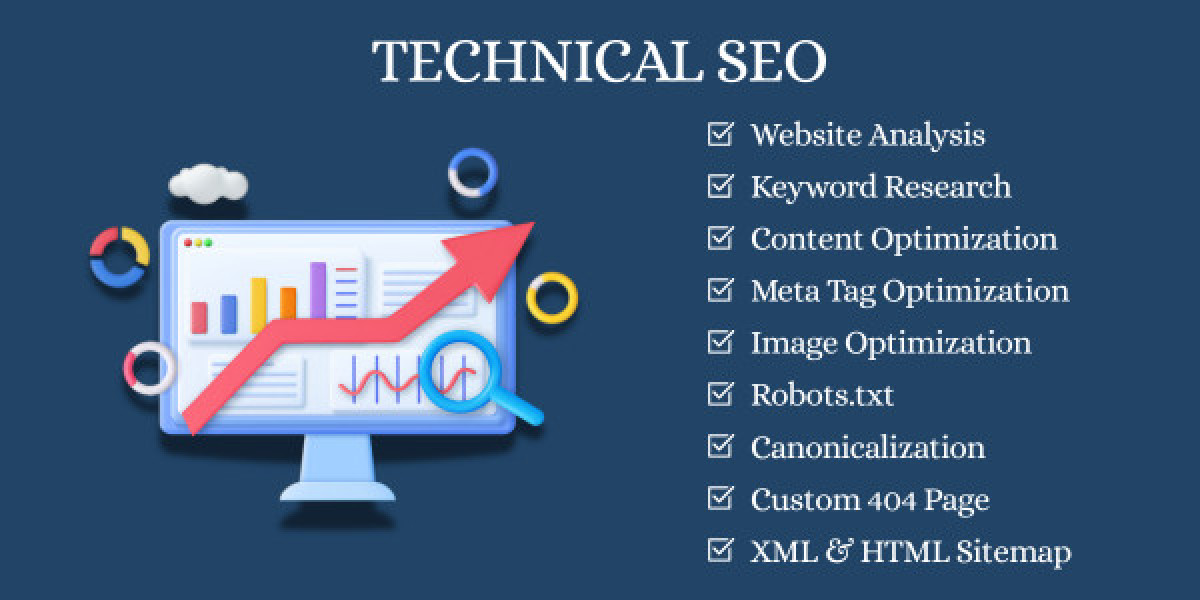When people think of search engine optimization (SEO), the first things that usually come to mind are keywords, backlinks, and content. While these are critical factors, there’s another side of SEO that is often overlooked yet equally important: technical SEO.
Technical SEO is the foundation that supports your entire digital presence. Without it, even the best content and link-building strategies may not deliver results. If your site isn’t technically optimized, search engines may struggle to crawl, index, or display it properly, which directly impacts rankings. In this article, we’ll dive deep into what technical SEO is, why it matters, and how to get it right.
Understanding Technical SEO
At its core, technical SEO refers to the optimization of a website’s infrastructure to make it easier for search engines to crawl and index. Unlike on-page SEO, which focuses on content and keywords, or off-page SEO, which deals with backlinks, technical SEO is about fine-tuning the behind-the-scenes elements of your site.
These optimizations ensure that your website meets the technical requirements of search engines like Google, making it easier for them to deliver your pages in response to search queries.
Why Technical SEO Matters
Search engines aim to provide users with the most relevant and reliable results. A site that loads slowly, isn’t mobile-friendly, or has broken links signals poor user experience. This not only frustrates visitors but also sends negative signals to search engines.
Here are some key reasons why technical SEO is crucial:
Crawlability: Search engines use bots (also called crawlers) to discover content. If your site isn’t crawlable, your pages may never make it into the search index.
Indexability: Even if crawlers find your pages, improper setup may prevent indexing. Indexed pages are what actually appear in search results.
User Experience: Technical SEO improves site speed, mobile responsiveness, and navigation, ensuring visitors stay longer and engage more.
Competitive Advantage: Sites with strong technical foundations rank higher, giving you an edge over competitors who overlook these details.
Search Engine Updates: Google frequently updates its algorithm to prioritize user experience, and technical SEO aligns your site with these evolving standards.
Key Elements of Technical SEO
To understand how technical SEO works, let’s break down its most important components.
1. Website Speed
Page load speed is a major ranking factor. A slow website increases bounce rates and frustrates users. Optimizations include compressing images, leveraging browser caching, and using a content delivery network (CDN).
2. Mobile-Friendliness
With mobile-first indexing, Google primarily uses the mobile version of a site for ranking. Responsive design ensures your site works seamlessly on all devices.
3. Secure Sockets Layer (SSL)
Websites with HTTPS encryption rank higher because they provide secure connections. Adding an SSL certificate is now a basic technical SEO requirement.
4. Crawlability and Indexing
Using robots.txt files and XML sitemaps helps guide crawlers through your site. Tools like Google Search Console can identify crawling errors and indexing issues.
5. Structured Data (Schema Markup)
Structured data helps search engines understand your content better. This can lead to rich snippets in search results, such as reviews, product details, or FAQs.
6. Duplicate Content Management
Duplicate content confuses search engines, potentially diluting rankings. Canonical tags and redirects prevent duplication issues.
7. Site Architecture
A logical, clean structure makes navigation easier for both users and crawlers. Using internal links strategically can boost the authority of key pages.
8. Core Web Vitals
Google measures user experience through Core Web Vitals, focusing on loading performance, interactivity, and visual stability. Optimizing these metrics is crucial for SEO.
Common Technical SEO Mistakes
Even experienced website owners often overlook some technical details. Common mistakes include:
Missing or incorrect XML sitemaps.
Overuse of JavaScript, making it harder for crawlers to access content.
Large, uncompressed images slowing down load times.
Broken links or redirect chains.
Lack of mobile optimization.
Identifying and fixing these errors can dramatically improve rankings.
Tools for Technical SEO
Thankfully, there are many tools available to diagnose and improve technical SEO. Some of the most popular include:
Google Search Console: For indexing, crawling, and error reports.
Screaming Frog SEO Spider: For site audits, broken links, and duplicate content.
GTmetrix and PageSpeed Insights: For analyzing site speed and performance.
Ahrefs and SEMrush: For comprehensive SEO audits and competitor analysis.
Using these tools regularly ensures your site remains technically sound and aligned with best practices.
How Technical SEO Boosts Rankings
Optimizing your website’s technical aspects creates a solid foundation for all other SEO efforts. Here’s how it directly impacts rankings:
Better Crawl Efficiency: Search engines can discover and index more pages quickly.
Improved User Signals: Faster load times and mobile-friendly designs reduce bounce rates.
Higher Visibility: Structured data and optimized architecture enhance your appearance in search results.
Sustainable Growth: A technically sound site adapts easily to algorithm updates.
When you combine technical SEO with strong content and backlink strategies, you maximize your chances of ranking at the top.
Technical SEO in Practice
Imagine two websites publishing identical content. One loads in under two seconds, is mobile-responsive, has structured data, and a clean sitemap. The other has broken links, slow loading times, and no SSL. Even though their content is equally valuable, the first website will always rank higher due to better technical SEO.
This demonstrates why ignoring technical SEO can sabotage even the best content marketing efforts. As the digital landscape evolves, ensuring your site meets technical standards is no longer optional—it’s essential.
Final Thoughts
Technical SEO may not be as visible as content marketing or social media campaigns, but it plays a decisive role in whether your website ranks or gets buried. From improving crawlability and indexing to enhancing user experience, it forms the backbone of successful SEO.
Brands that want to future-proof their digital presence must invest in ongoing technical audits and improvements. Partnering with experts or platforms like mediaupshift can provide the insights and support needed to stay ahead.
By mastering technical SEO, you create a solid foundation for your site, ensuring that all other marketing efforts produce maximum impact.



